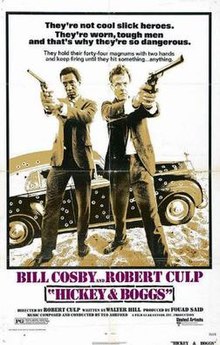
Roger William Corman is an American film director, producer, and actor. Known under various monikers such as "The Pope of Pop Cinema", "The Spiritual Godfather of the New Hollywood", and "The King of Cult", he is known as a trailblazer in the world of independent film. Many of Corman's films are low-budget cult films including some which are adapted from the tales of Edgar Allan Poe.

George Roy Hill was an American film director. His films include Butch Cassidy and the Sundance Kid (1969) and The Sting (1973), both starring Paul Newman and Robert Redford.
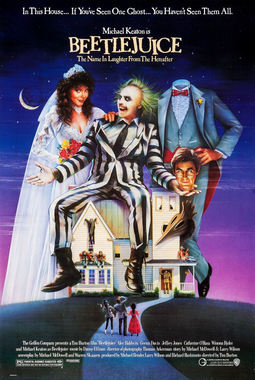
Beetlejuice is a 1988 American fantasy horror comedy film directed by Tim Burton from a screenplay by Michael McDowell and Warren Skaaren based on a story by McDowell and Larry Wilson. The film stars Alec Baldwin, Geena Davis, Jeffrey Jones, Catherine O'Hara, Winona Ryder, and Michael Keaton as the title character. The first installment of the Beetlejuice franchise, the plot revolves around a recently deceased couple. As ghosts, they are not allowed to leave their house. They contact Betelgeuse, a charismatic "bio-exorcist" from the Netherworld, to scare the home's new inhabitants away.
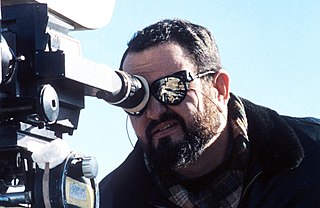
John Frederick Milius is an American screenwriter, film director, and producer. He was a writer for the first two Dirty Harry films, received an Academy Award nomination as screenwriter of Apocalypse Now (1979), and wrote and directed The Wind and the Lion (1975), Conan the Barbarian (1982), and Red Dawn (1984). He later served as the co-creator of the Primetime Emmy Award-winning television series Rome (2005–2007).

I Spy is an American secret-agent adventure television series that ran for three seasons on NBC from September 15, 1965, to April 15, 1968, and teamed US intelligence agents Kelly Robinson and Alexander "Scotty" Scott, traveling undercover as international "tennis bums." Robinson poses as an amateur with Scott as his trainer, playing against wealthy opponents in return for food and lodging. Their work involved chasing villains, spies, and beautiful women.
A hickey is a mark on the skin caused by amorous contact.

Robert Martin Culp was an American actor and screenwriter widely known for his work in television. Culp earned an international reputation for his role as Kelly Robinson on I Spy (1965–1968), the espionage television series in which co-star Bill Cosby and he played secret agents. Before this, he starred in the CBS/Four Star Western series Trackdown as Texas Ranger Hoby Gilman in 71 episodes from 1957 to 1959. The 1980s brought him back to television as FBI Agent Bill Maxwell on The Greatest American Hero. Later, he had a recurring role as Warren Whelan on Everybody Loves Raymond, and was a voice actor for various computer games, including Half-Life 2. Culp gave hundreds of performances in a career spanning more than 50 years.
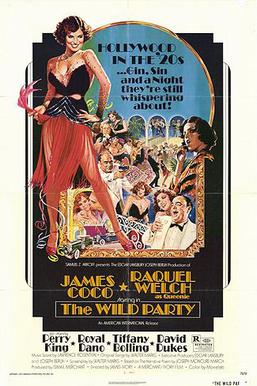
The Wild Party is a 1975 American comedy-drama film directed by James Ivory and produced by Ismail Merchant for Merchant Ivory Productions. Loosely based on Joseph Moncure March's narrative poem of the same name, the screenplay is written by Walter Marks, who also composed the score. The plot follows an aging silent movie comic star of the 1920s named Jolly Grimm attempts a comeback by staging a party to show his new film.
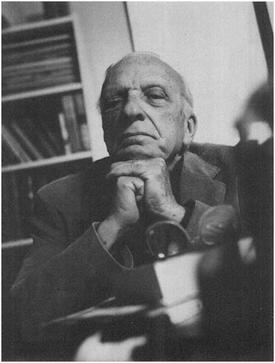
Philip Yordan was an American screenwriter, film producer, novelist and playwright. He was a three-time Academy Award nominee, winning Best Story for Broken Lance (1951).
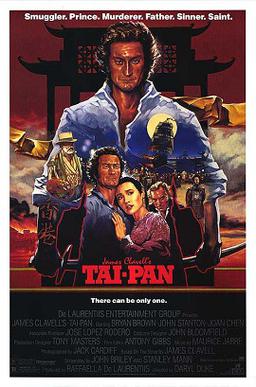
Tai-Pan is a 1986 adventure drama film directed by Daryl Duke, loosely based on James Clavell's 1966 novel of the same name. While many of the same characters and plot twists are maintained, a few smaller occurrences are left out. Filmed under communist Chinese censorship, some portions of Clavell's story were considered too offensive to be filmed as written and considerable changes were made.
John Paxton was an American screenwriter.

Walter Hill is an American film director, screenwriter, and producer known for his action films and revival of the Western genre. He has directed such films as The Driver, The Warriors, Southern Comfort, 48 Hrs. and its sequel Another 48 Hrs., Streets of Fire and Red Heat, and wrote the screenplay for the crime drama The Getaway. He has also directed several episodes of television series such as Tales from the Crypt and Deadwood and produced the Alien films.
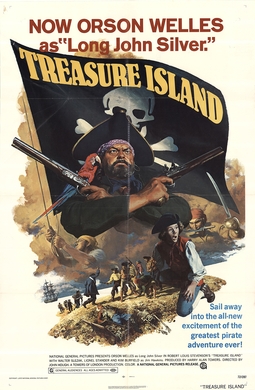
Treasure Island is a 1972 adventure film, based on the 1883 novel by Robert Louis Stevenson. The film stars Orson Welles as Long John Silver, Kim Burfield as Jim Hawkins, Walter Slezak as Squire Trelawney, Rik Battaglia as Captain Smollett, and Ángel del Pozo as Doctor Livesey.

You've Got to Walk It Like You Talk It or You'll Lose That Beat is a 1971 low-budget comedy-drama film directed by Peter Locke and starring Zalman King. The story concerns a young hippie and his search in New York City for the meaning of life.
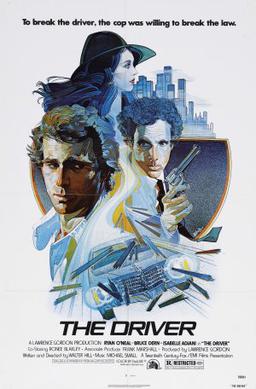
The Driver is a 1978 American crime thriller film written and directed by Walter Hill, and starring Ryan O'Neal, Bruce Dern and Isabelle Adjani. The film featured only unnamed characters, and follows a getaway driver for robberies whose exceptional talent has prevented him being caught. The detective promises pardons to a gang if they help catch him in a set-up robbery.
David Kevin Giler, was an American filmmaker who had been active in the film industry since the early 1960s.

Wild Bill is a 1995 American acid Western film about the last days of legendary lawman Wild Bill Hickok. The film was written and directed by Walter Hill, and based on the 1978 stage play Fathers and Sons by Thomas Babe and the 1986 novel Deadwood by Pete Dexter. It stars Jeff Bridges, Ellen Barkin, John Hurt, and Diane Lane, and was released by United Artists on December 1, 1995. It was a box-office bomb, grossing $2.1 million on a budget of $30 million, and received mixed reviews from critics.

Fouad Said is an Egyptian producer, cinematographer and filmmaker.
"The War Lord" is the twentieth episode of the second season of the American comedy drama television series I Spy, originally aired on February 1, 1967 in the United States. Directed by Alf Kjellin, the episode was written by Robert Culp, who played one of the main characters of the series, Kelly Robinson; in this episode, he also played the guest character, Chuang Tzu.

American comedian, actor, author, director, and producer Bill Cosby is known for his performances in film, television, and stand-up comedy, and is perhaps most famous for his portrayal of the family patriarch Dr. Cliff Huxtable in the sitcom The Cosby Show (1984-1992).
